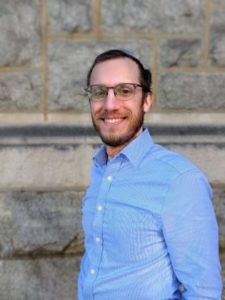
Before the High Holidays last year, when 5781 became 5782, Philadelphia-area synagogues planned to return to in-person services after the remote COVID year of 2020. But the delta variant altered those plans.
Many synagogues were in-person but with restrictions, and with many congregants choosing the virtual option.
Now, going into this year’s High Holidays, when 5782 becomes 5783, shuls again plan to gather in their sanctuaries. At the same time, they are offering a virtual option, though not because we are past COVID and into the hybrid future. They are offering it, along with requiring or suggesting other safety measures, because the pandemic lingers.
As Rosh Hashanah approaches on Sept. 25, hundreds of Americans per day are still dying from COVID.
Rabbi Abe Friedman of Temple Beth Zion-Beth Israel in Philadelphia compared this stage of the pandemic to the recovery stage between the beginning and end of an illness. There is that space of recovery in between, he said.
“A lot of people are out of it, and a lot of people are very much in it,” Friedman added. “We’re trying to stay cognizant that these High Holidays will not be the same for everybody.”
BZBI has about 400 households in its congregation. They fall into roughly two categories concerning COVID more than two years in, with a vaccine available and society back open.
Friedman hears from some members who are immunocompromised and much more vulnerable than the average person. Then he hears from others who are no longer concerned about it.
Even last year, though, the Philadelphia synagogue did not cap its in-person attendance number. Its sanctuary is big enough to accommodate adequate spacing, Friedman explained. But it did require vaccinations and masks. This year, those are open questions that the rabbi and other synagogue leaders will figure out in the coming weeks.
One thing they know is that they will hold two services, in separate places in the temple’s Center City building, for Kol Nidre. BZBI’s ritual committee expects peak attendance on the eve of Yom Kippur and wants to make sure that people feel comfortable coming in.
“If people feel like there are more people than they are comfortable with, they’ll have another room to check out,” Friedman said.
Other synagogues have similar concerns. At Ohev Shalom of Bucks County, leaders welcomed about a third of the normal, 1,000-person, pre-COVID, High Holiday crowd last September, according to Rabbi Eliott Perlstein. This year, the rabbi hopes to increase that in-person number to about 50 or 60% of the pre-COVID crowd.
The rest, like in 2021, will be able to gather online. And in person, social distancing and masks will be optional.
“So I wouldn’t say we’re totally post-pandemic, but we’re moving in the right direction,” Perlstein said. “It’s a real balancing act.”
Down the shore at Shirat Hayam Congregation in Ventnor, New Jersey, a large in-person sanctuary will allow people to spread out from each other, Rabbi Jonathan Kremer explained. But even in that safe space, attendees who are not vaccinated must be masked.
Shirat Hayam’s 300-family congregation is older, and “it’s not worth taking the risk,” Kremer said.
“We’re told in the book of Deuteronomy to choose life, and we’d rather err on the side of being overly cautious, just as we do with security,” he added.
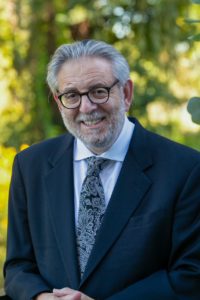
Perhaps no synagogue in the region is being more cautious than Or Zarua on the Main Line, an 80-family congregation made up primarily of baby boomers. The older members decided to take the risk this summer to travel and see their families, according to Rabbi Shelly Barnathan. But then there were “a lot of incidents of COVID,” she added.
Since Or Zarua gathers in the Old Haverford Friends Meetinghouse, which is small, congregants can’t spread out during services. So when Barnathan and her members looked ahead to the High Holidays in the fall, they decided to go virtual for the third straight year.
Last year, there were more than 100 screens on Zoom.
“We found ways to do the social connection,” she said.
Not all synagogues are operating with restrictions. Several rabbis said they would be back in person for the High Holidays with virtual options, yes, but no other limiting safety measures. But most are offering the online option because they acknowledged that many congregants are still worried about COVID.
“Beth El is fully back but, we are making accommodations for people who aren’t quite comfortable coming into the building,” said Rabbi David Cantor of Congregation Beth El in Yardley. JE



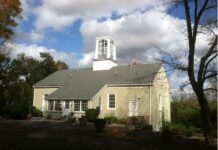
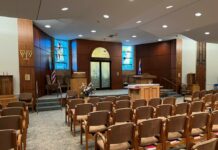
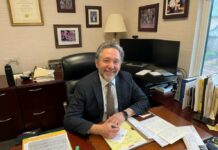

very good reading